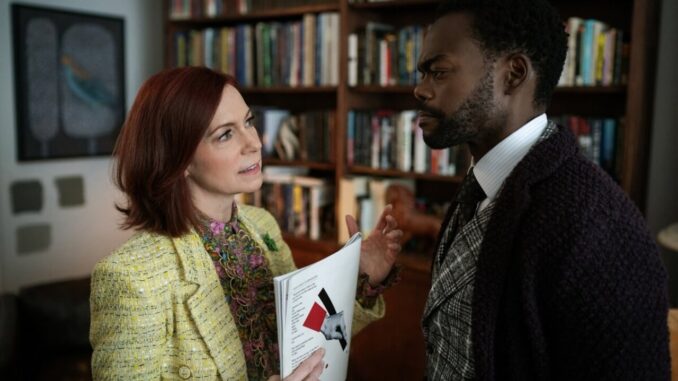
The Elsbeth in My Blood: Finding the Character You’re Born To Play
Carrie Preston, bathed in the effervescent praise for her portrayal of Elsbeth Tascioni, is a beacon for every actor who has ever yearned to embody a character so completely that it feels less like acting and more like exhaling. The shower of compliments isn’t just about talent, though Preston has that in spades. It’s about a convergence, a mystical alignment between the performer and the role, a feeling that this, this quirky, brilliant, seemingly scattered lawyer, is a character she was born to play. And in witnessing that effortless embodiment, I, and likely many other actors, are reminded of the elusive quest for that very same connection.
The idea of a character you are “born to play” isn’t about predestination or a preordained fate etched into the celestial scroll. It’s about resonance. It’s about finding a character whose essence vibrates on the same frequency as your own, whose anxieties, strengths, vulnerabilities, and quirks echo within your soul. It’s about discovering a persona that allows you to unlock a part of yourself you didn’t even know existed, or perhaps a part you had suppressed, fearing it was too odd, too loud, too you to be palatable.
For me, the search for that resonant role has been a lifelong exploration, a process of peeling back the layers of learned behaviors and societal expectations to uncover the authentic self that lies beneath. I’ve played the ingenue, the villain, the heartbroken lover, the stoic leader – each a costume donned for the stage, some fitting better than others. But none quite felt like slipping into my own skin, a comfortable and familiar home.
I remember auditioning for a quirky comedy some years ago. The character was a socially awkward but incredibly intelligent librarian with a penchant for conspiracy theories and a secret passion for competitive bird watching. On paper, she was miles away from the roles I typically auditioned for – the strong, independent women with perfectly coiffed hair and witty retorts. But something about her sparked a flicker of recognition.
As I prepared for the audition, I realized I was drawing upon aspects of myself I usually kept hidden. The anxieties I often dismissed as insignificant suddenly felt relevant. My lifelong fascination with obscure facts and unusual hobbies, previously deemed “eccentric,” became her defining traits. I allowed myself to embrace the awkwardness, the vulnerability, the quiet intensity that I typically tried to mask.
During the audition, something shifted. The lines flowed effortlessly, the character’s motivations felt intrinsically linked to my own. I wasn’t just reciting dialogue; I was being her. I felt a sense of liberation, a permission to unleash the quirky, unconventional parts of myself without judgment. Though I didn’t get the role, the experience was transformative. It revealed to me that the characters I am most drawn to, and perhaps the ones I am “born to play,” are not those that reflect a polished, idealized version of myself, but those that embrace the messy, imperfect, and wonderfully unique individual I truly am.
This pursuit of the resonant role is not without its challenges. It requires a deep level of self-awareness, an honest assessment of your strengths and weaknesses, and a willingness to step outside your comfort zone. It also requires patience, as the perfect character may not come along every day, or even every year.
But the rewards are immeasurable. When an actor truly connects with a character, the performance transcends mere imitation. It becomes an act of genuine self-expression, a moment of truth that resonates with the audience on a visceral level. Carrie Preston’s Elsbeth is a testament to this power. Her performance is not just technically brilliant; it’s infused with a genuine joy and understanding that can only come from a deep, intrinsic connection to the character.
Ultimately, the search for the character you are “born to play” is a journey of self-discovery, a quest to uncover the hidden facets of your own personality and to find a voice that is authentic and true. It’s about embracing your individuality, celebrating your quirks, and allowing yourself to be seen, not as a performer, but as a human being, deeply connected to the character you are portraying. And when that connection is forged, the result is not just a performance, but a transformation, a moment of magic that elevates the art of acting to something truly extraordinary. Perhaps, like Elsbeth, that’s where true brilliance, and that shower of well-deserved compliments, truly lie.
